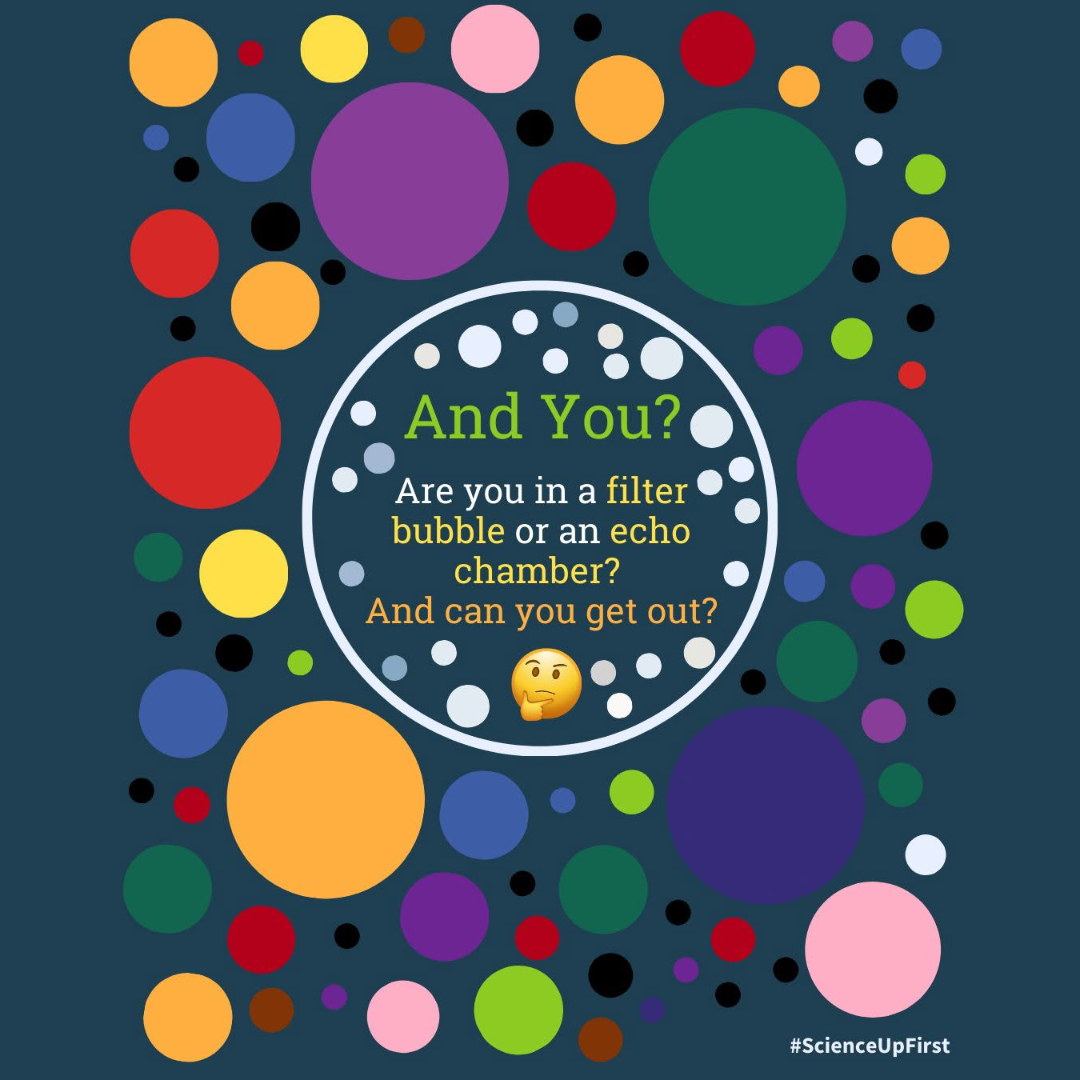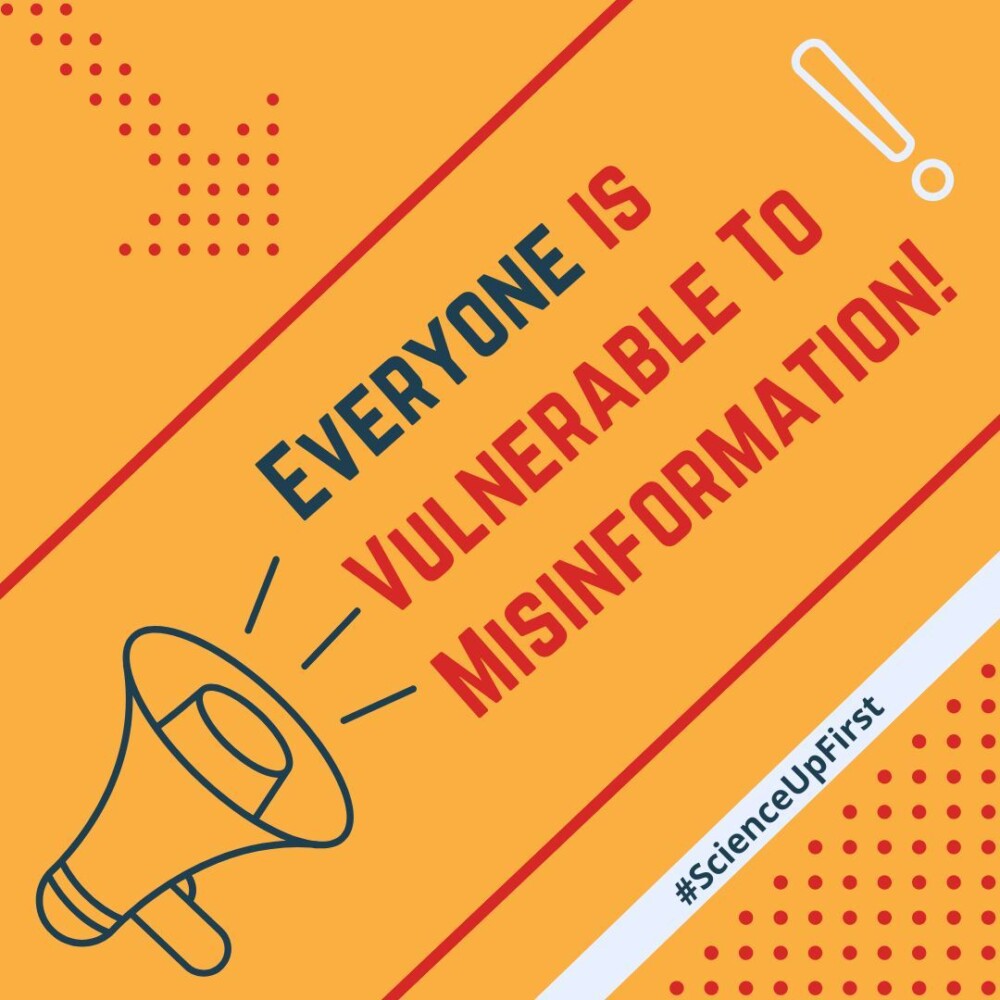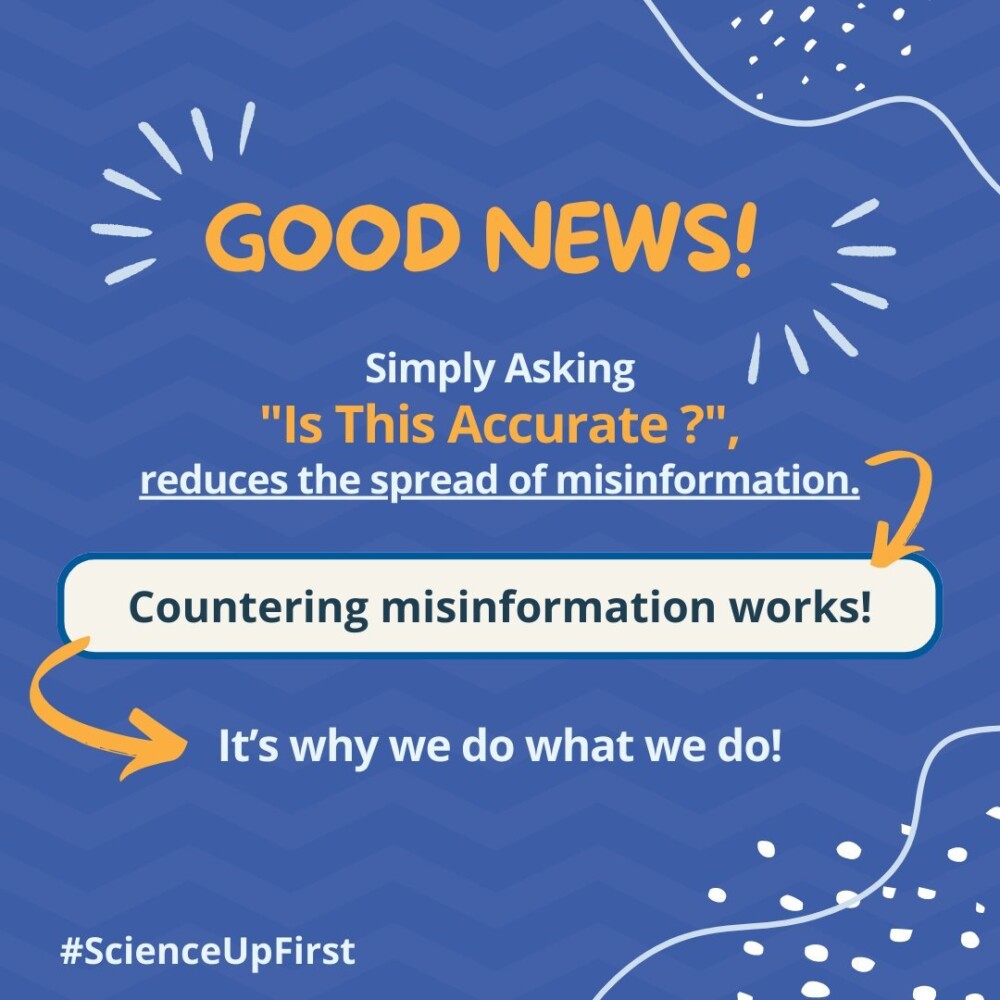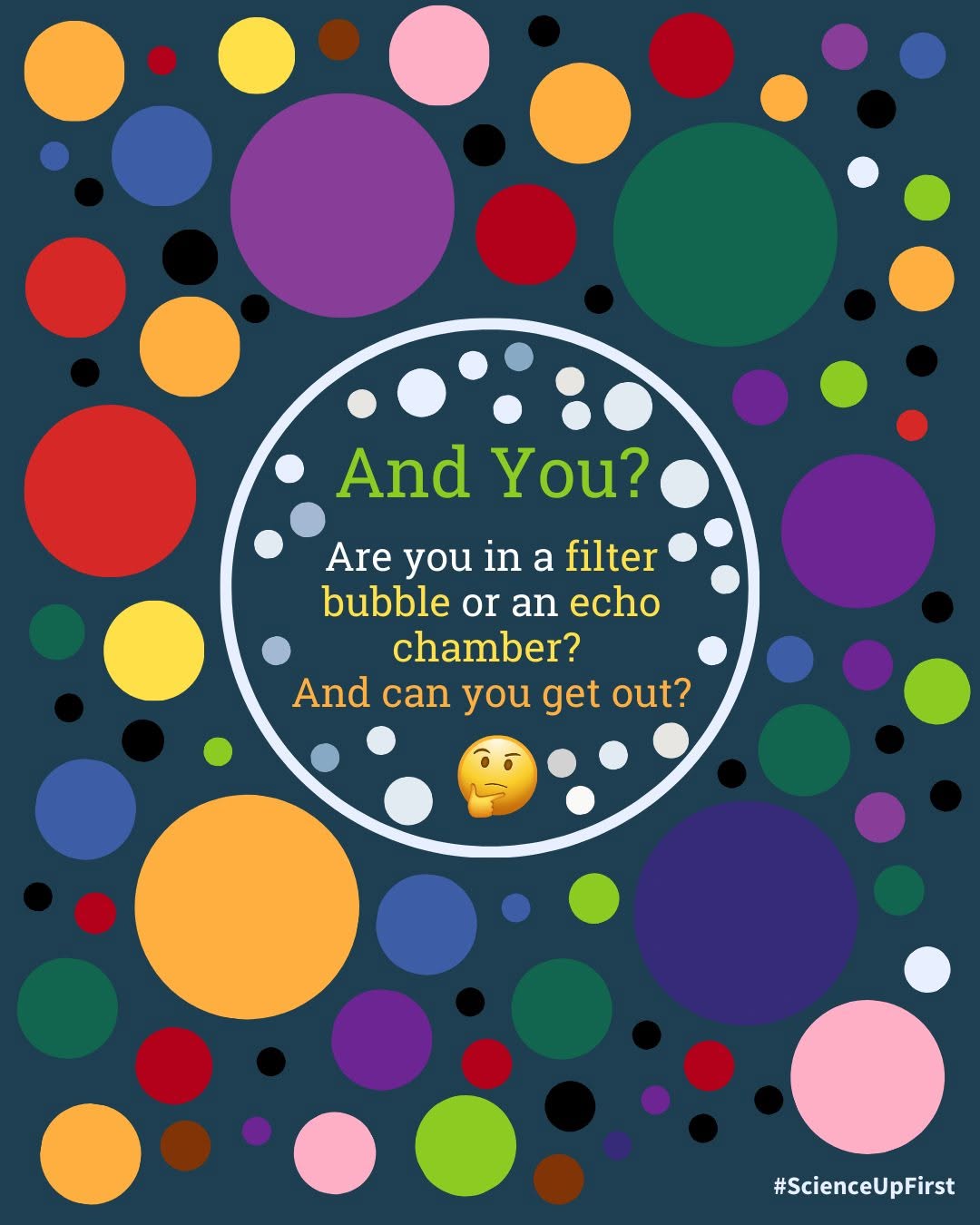
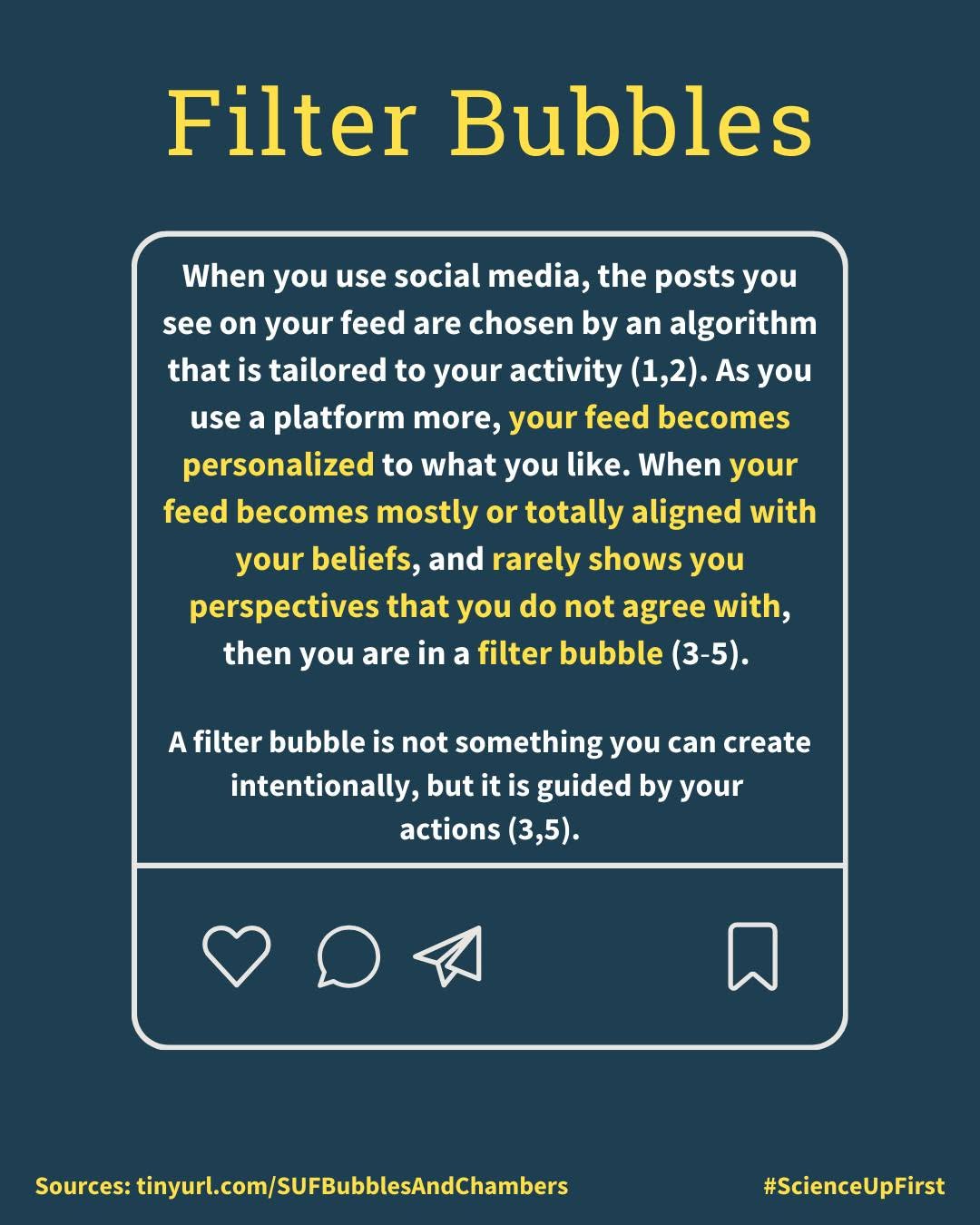
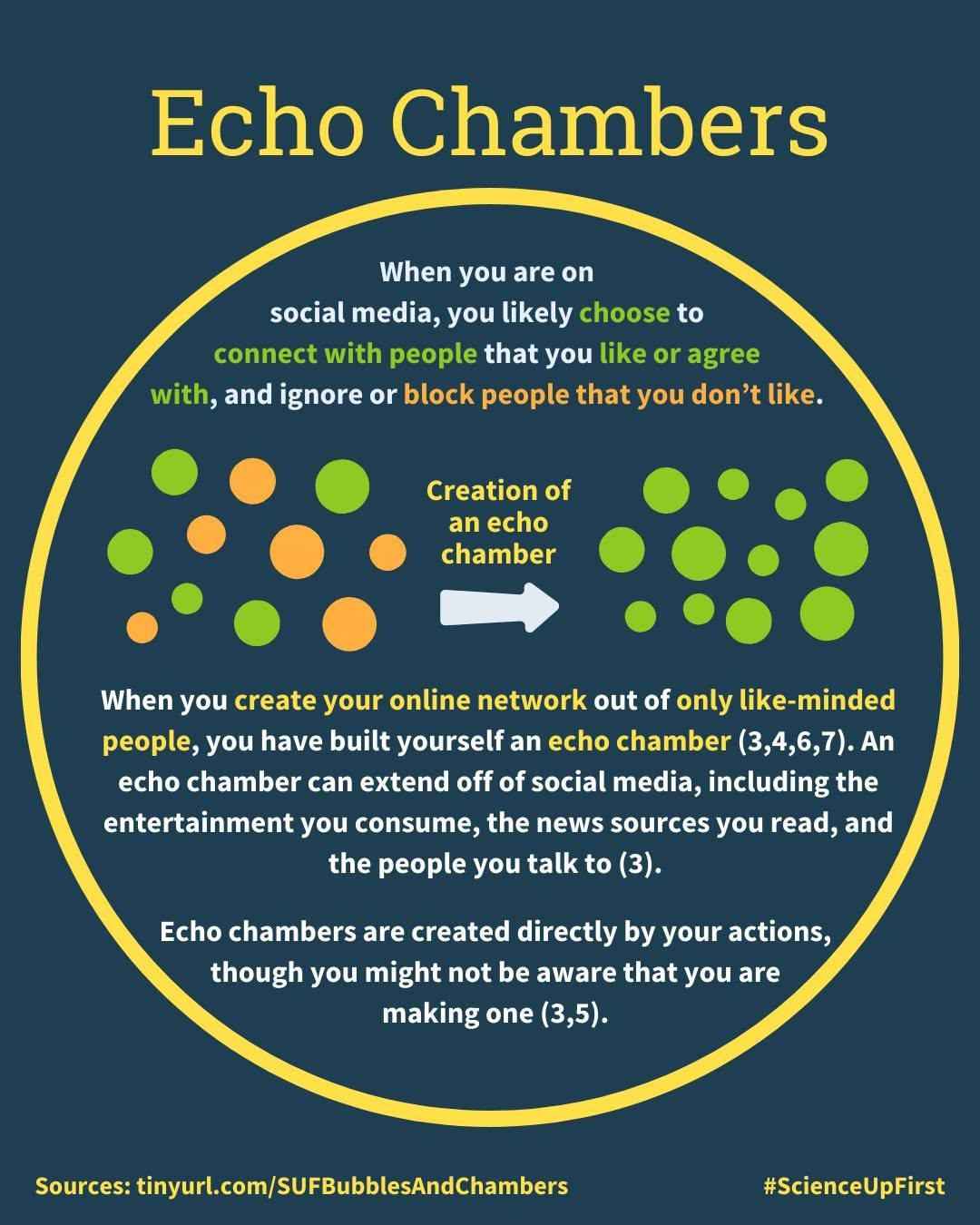
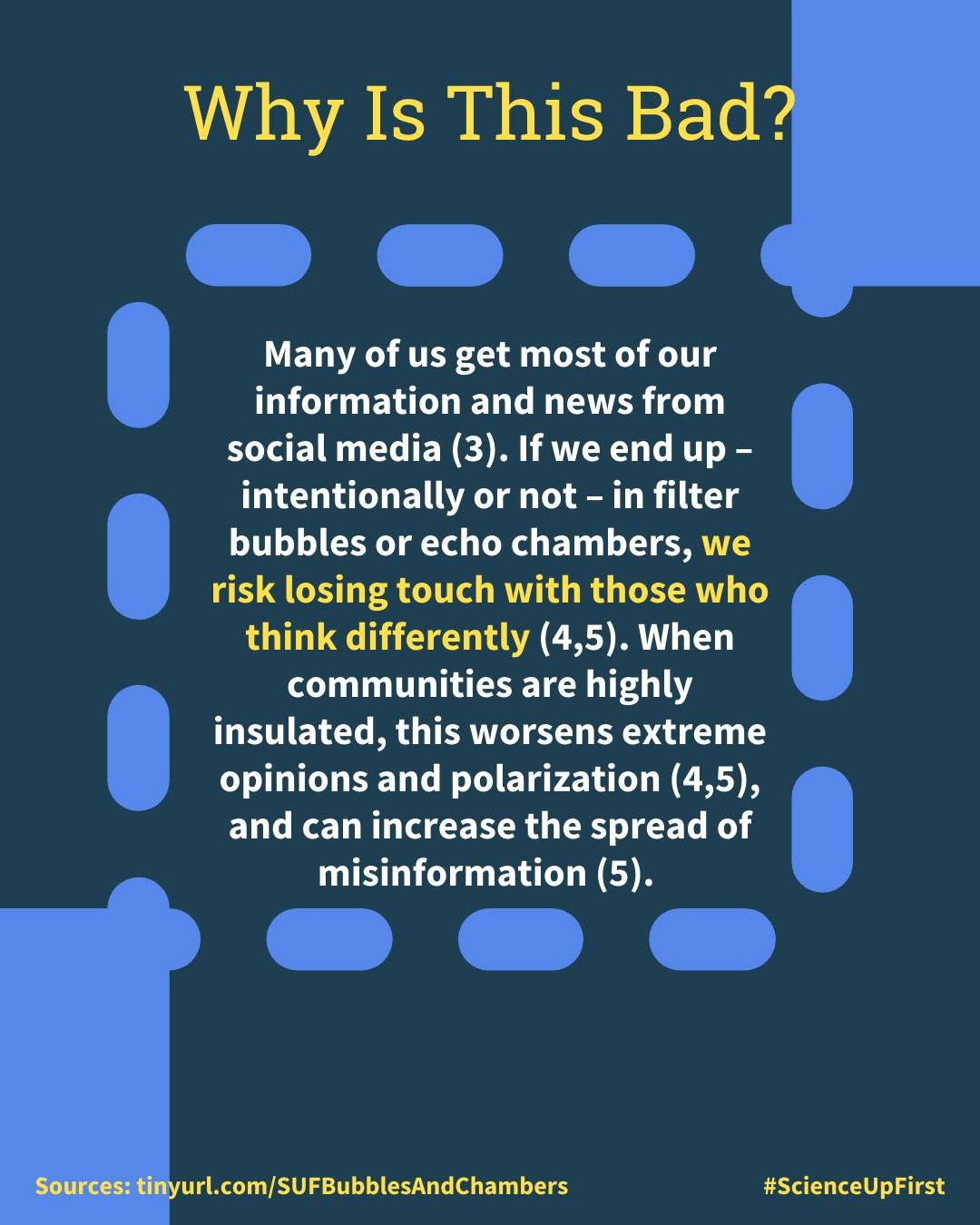
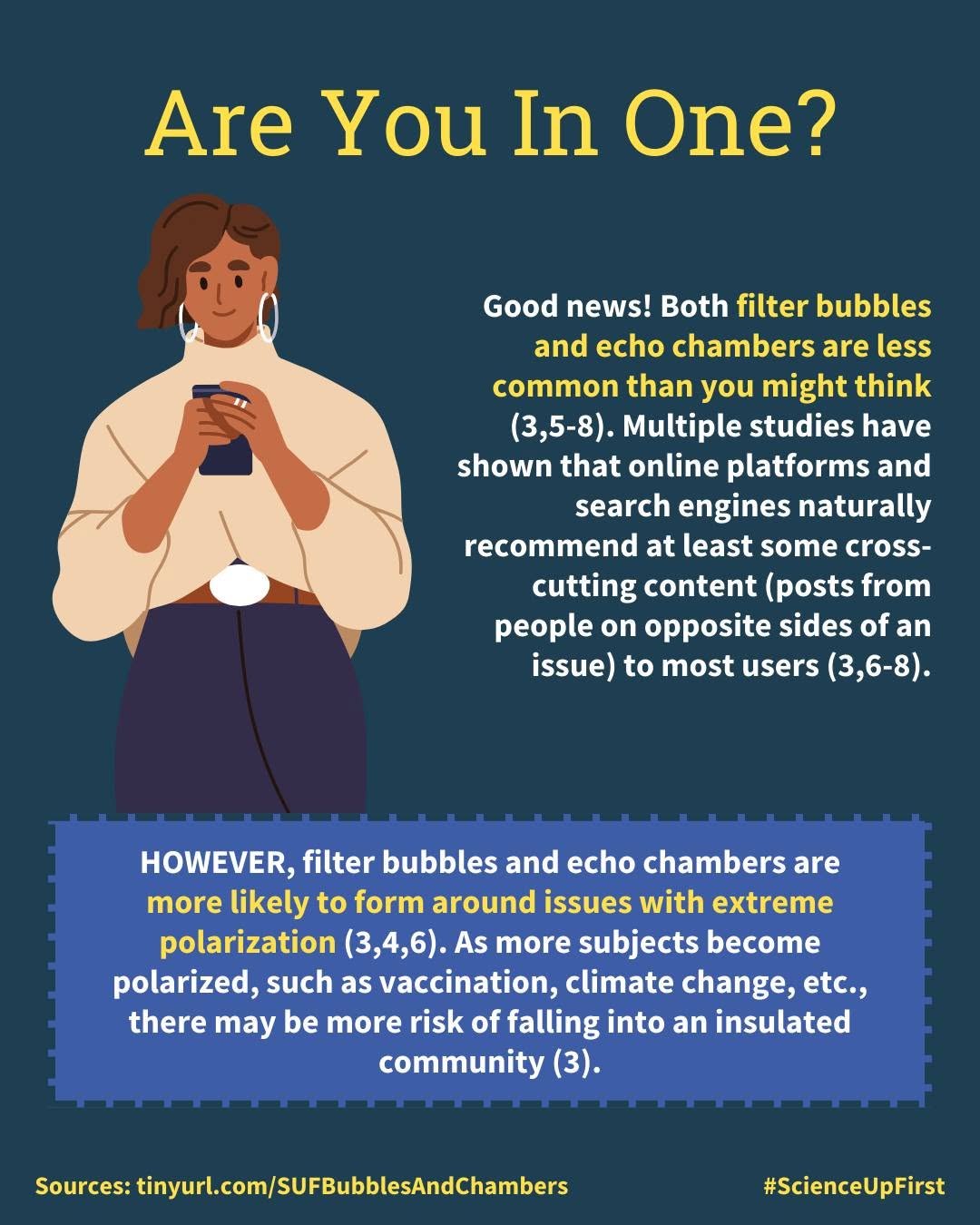
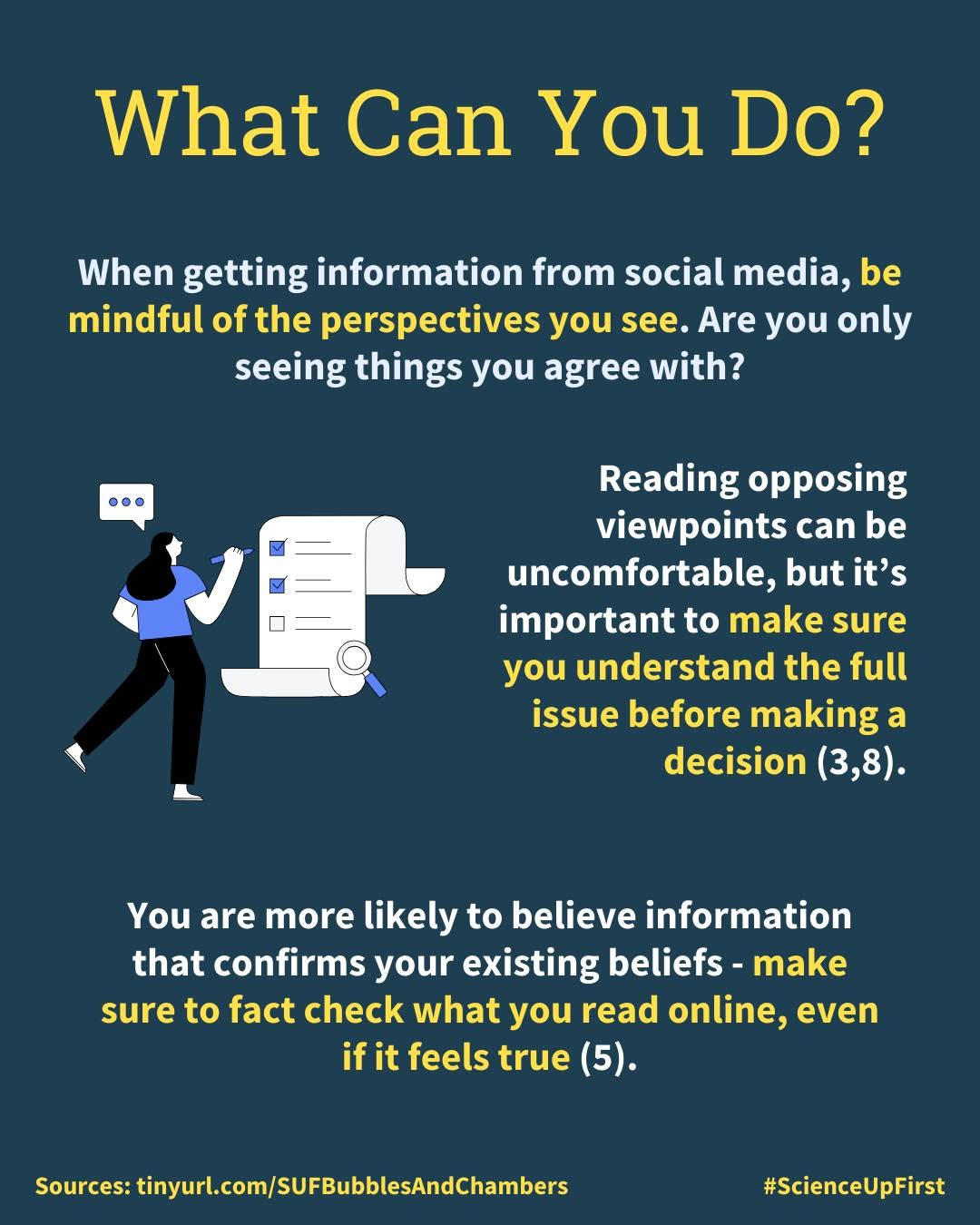
It’s time to burst the (filter) bubble! 🫧
The terms “filter bubble” and “echo chamber” are often used interchangeably, but they are not the same.
Both terms refer to the tendency for your social media feed to show you things that you already like or agree with, instead of things that challenge your existing beliefs (3-7). We get a lot of our information from social media, so being in an isolated information space can make opinions more extreme (4,5) and lower resistance to misinformation (5).
Read on to learn what these terms really mean, and how prevalent they are.
- Content-based filtering algorithm in social media | Wasit Journal of Computer and Mathematics Science | March 2023
- Social Media Algorithms: Why You See What You See | Georgetown Law Technology Review | December 2017
- Echo Chambers, Filter Bubbles, and Polarisation: a Literature Review | Oxford University | 2022
- Examining the interactive effects of the filter bubble and the echo chamber on radicalization | Journal of Experimental Criminology | August 2021
- The Psychology of Misinformation | Cambridge University Press | March 2024
- It’s Not the Technology, Stupid: How the ‘Echo Chamber’ and ‘Filter Bubble’ Metaphors Have Failed Us | Queensland University of Technology | July 2019
- Echo Chamber? What Echo Chamber? Reviewing the Evidence | Queensland University of Technology | September 2017
- Through the Newsfeed Glass: Rethinking Filter Bubbles and Echo Chambers | Philosophy & Technology | March 2022
Share our original Bluesky post!
The terms "filter bubble" and "echo chamber" are often used interchangeably, but they are not the same. We explain the differences between these two terms here scienceupfirst.com/misinformati… #ScienceUpFirst
— ScienceUpFirst (@scienceupfirst.bsky.social) February 27, 2025 at 12:41 PM
[image or embed]
View our original Instagram Post!

